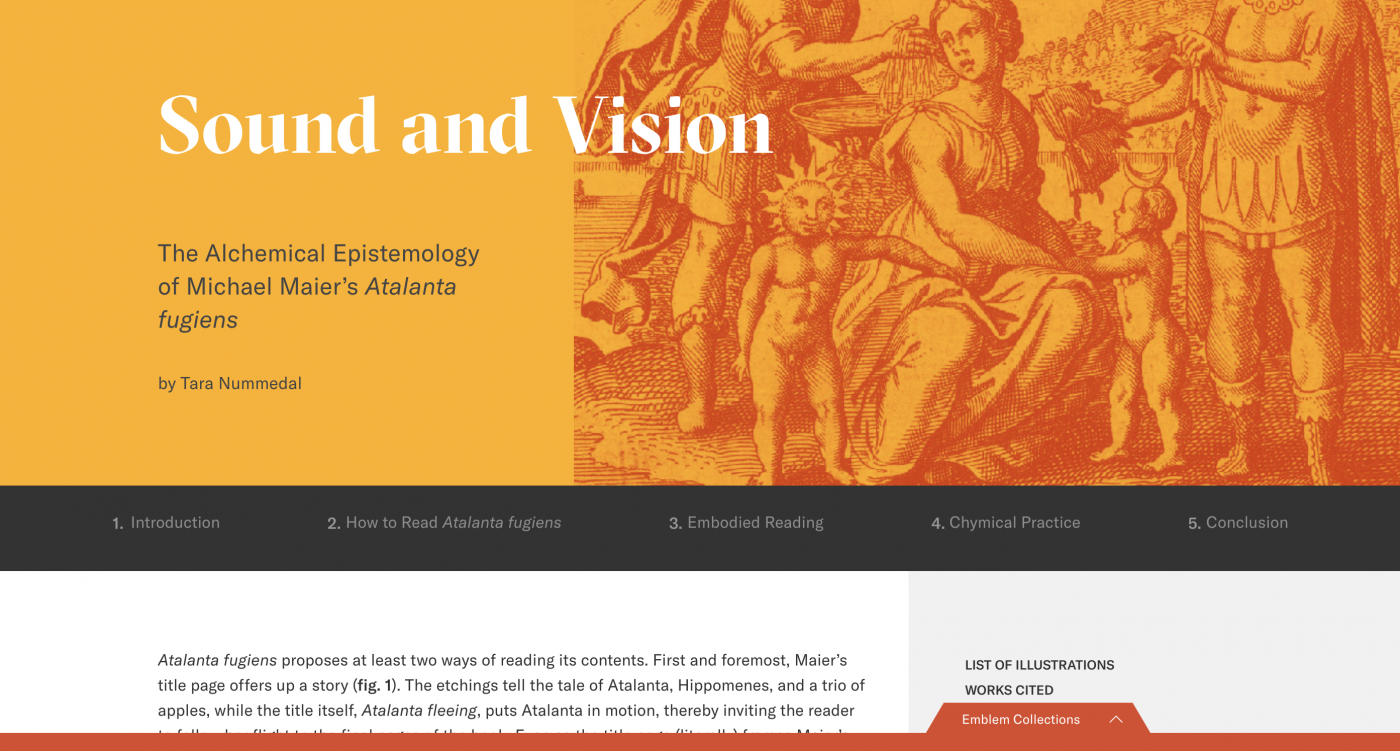PROVIDENCE, R.I. [Brown University]—The Andrew W. Mellon Foundation has awarded $775,000 to Brown University to develop several digital publications that will showcase new humanities scholarship from Brown researchers in creative, original ways.
The Mellon Foundation grant will enable the Digital Publications Initiative, a partnership between the University Library and the Office of the Dean of the Faculty, to develop up to five “born-digital monographs”—long-form, media-rich, interactive scholarly research projects intended to be published by university presses.
With features that can include video, interactive maps, 3D simulations, original music and non-linear reading experiences, these digital publication projects will open the world of humanities research to audiences across the globe, both inside and outside of academia, and enrich the experience of engaging with scholarly research.

“With The Mellon Foundation’s support, Brown continues to rethink humanities scholarship,” said University Librarian Joseph Meisel. “We’re taking advantage of digital tools, technology and design to advance rigorous, substantial scholarly research in ways that could not have been done before today.”
The six-year grant renews the Foundation’s support for the Digital Publications Initiative, which launched in 2015 with funds from another Mellon Foundation award. That initial grant allowed the library’s Center for Digital Scholarship to accept and develop five publication projects; the pilot project, titled “Furnace and Fugue: A Digital Edition of Michael Maier’s ‘Atalanta fugiens’ (1618) with Scholarly Commentary,” will be published by the University of Virginia Press.
At the heart of “Furnace and Fugue” is a unique 17th-century book, “Atalanta fugiens,” a copy of which is held at the John Hay Library. A longtime object of fascination for Professor of History Tara Nummedal, the book is difficult to categorize, she says. Contained within it are allegorical illustrations, poems describing early chemistry experiments and musical fugues written for an ensemble of three singers. “Furnace and Fugue” recasts the 400-year-old multidisciplinary masterpiece as an enhanced digital publication, with newly commissioned and interactive vocal performances, transcriptions and translations of the original Latin and German, and a series of introductory essays that complement the scholarly interpretation.
“By using digital tools and methods, we’ve managed to bring to life an enigmatic book from the early modern period,” said Allison Levy, digital scholarship editor at the Brown library. “Such an approach not only offers context, but also opens up new ways for readers to interact with the text and with each other.”
Other faculty-driven digital publication projects facilitated by the library and funded by the first Mellon Foundation grant include a survey of the history of virtual reality, beginning with 18th- and 19th-century optical devices; a 3D model of the ruins of a French medieval monastery that conveys the sights, sounds and smells medieval visitors would have experienced; a project that rethinks the relationship between Islam and temporality, spanning the centuries and regions where Islam has been a significant presence; and a re-examination of the Roman revolution of 1848 via a trove of recently rediscovered correspondence.
Dean of the Faculty Kevin McLaughlin said that with the new Mellon Foundation grant, the University will be able to further expand its support of digital humanities scholarship.
“With this renewed support from The Mellon Foundation, Brown will be able to continue to produce innovative digital publications that open new possibilities for the presentation and dissemination of high-quality faculty scholarship,” said McLaughlin, co-principal investigator for the Initiative. “There is no model or prescribed roadmap to follow in the realm of digital humanities scholarship. We are creating our own models, and that’s quite exciting.”